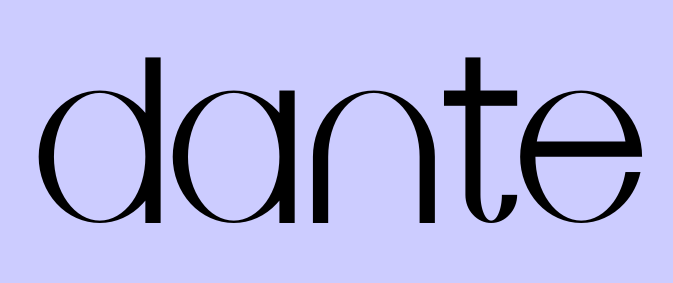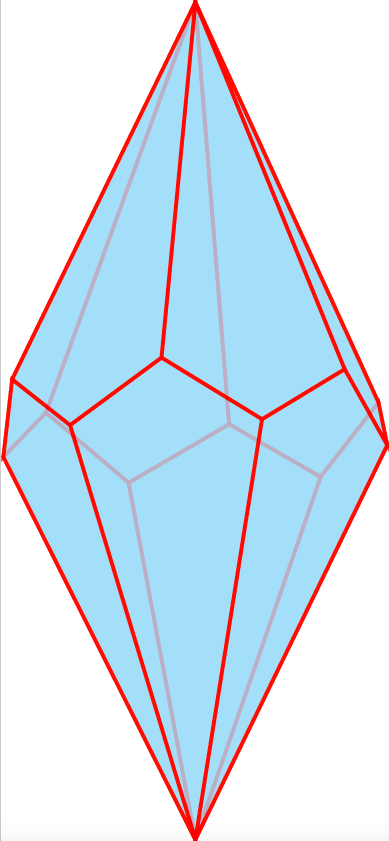Edit and compile if you like:
\documentclass{article}
\usepackage{tikz}
\usepackage{tikz-3dplot}
\usepackage[active,tightpage]{preview}
\PreviewEnvironment{tikzpicture}
\setlength\PreviewBorder{0.125pt}
%
% File name: hexagonal-trapezohedron.tex
% Description:
% A geometric representation of the hexagonal trapezohedron is shown.
%
% Date of creation: June, 27th, 2021.
% Date of last modification: October, 9th, 2022.
% Author: Efraín Soto Apolinar.
% https://www.aprendematematicas.org.mx/author/efrain-soto-apolinar/instructing-courses/
% Source: page 482 of the
% Glosario Ilustrado de Matem\'aticas Escolares.
% https://tinyurl.com/5udm2ufy
%
% Terms of use:
% According to TikZ.net
% https://creativecommons.org/licenses/by-nc-sa/4.0/
% Your commitment to the terms of use is greatly appreciated.
%
\begin{document}
\tdplotsetmaincoords{80}{110}
%
\begin{tikzpicture}[tdplot_main_coords]
% Change the value of the number at {\escala}{##} to scale the figure up or down
\pgfmathsetmacro{\escala}{1.5}
\pgfmathsetmacro{\r}{\escala}
\pgfmathsetmacro{\cero}{sqrt(2 * (3 * sqrt(3) - 5)) / 4}
\pgfmathsetmacro{\uno}{sqrt(3) / 2}
\pgfmathsetmacro{\dos}{sqrt(2 * (19 + 11 * sqrt(3))) / 4}
% Coordinates of the vertices
\coordinate(1) at (\escala*0.0,\escala*0.0,\escala*\dos);
\coordinate(2) at (\escala*0.0, \escala*0.0, -\escala*\dos);
\coordinate(3) at (\escala*0.0, \escala*1.0, \escala*\cero);
\coordinate(4) at (\escala*0.0, -\escala*1.0, \escala*\cero);
\coordinate(5) at (\escala*1.0, \escala*0.0, -\escala*\cero);
\coordinate(6) at (-\escala*1.0, \escala*0.0, -\escala*\cero);
\coordinate(7) at (\escala*\uno, \escala*0.5, \escala*\cero);
\coordinate(8) at (\escala*\uno, -\escala*0.5, \escala*\cero);
\coordinate(9) at (-\escala*\uno, \escala*0.5, \escala*\cero);
\coordinate(10) at (-\escala*\uno, -\escala*0.5, \escala*\cero);
%
\coordinate(11) at (\escala*0.5, \escala*\uno, -\escala*\cero);
\coordinate(12) at (\escala*0.5, -\escala*\uno, -\escala*\cero);
\coordinate(13) at (-\escala*0.5, \escala*\uno, -\escala*\cero);
\coordinate(14) at (-\escala*0.5, -\escala*\uno, -\escala*\cero);
% Faces of the polyhedron
\draw[red,thick,fill=cyan!35,opacity=0.75] (1) -- (4) -- (12) -- (8) -- cycle;
\draw[red,thick,fill=cyan!35,opacity=0.75] (1) -- (8) -- (5) -- (7) -- cycle;
\draw[red,thick,fill=cyan!35,opacity=0.75] (1) -- (7) -- (11) -- (3) -- cycle;
\draw[red,thick,fill=cyan!35,opacity=0.75] (2) -- (5) -- (8) -- (12) -- cycle;
\draw[red,thick,fill=cyan!35,opacity=0.75] (2) -- (13) -- (3) -- (11) -- cycle;
\draw[red,thick,fill=cyan!35,opacity=0.75] (2) -- (11) -- (7) -- (5) -- cycle;
%
\draw[red,thick,fill=cyan!35,opacity=0.75] (1) -- (3) -- (13) -- (9) -- cycle;
\draw[red,thick,fill=cyan!35,opacity=0.75] (2) -- (6) -- (9) -- (13) -- cycle;
\draw[red,thick,fill=cyan!35,opacity=0.75] (1) -- (9) -- (6) -- (10) -- cycle;
\draw[red,thick,fill=cyan!35,opacity=0.75] (2) -- (14) -- (10) -- (6) -- cycle;
\draw[red,thick,fill=cyan!35,opacity=0.75] (2) -- (12) -- (4) -- (14) -- cycle;
\draw[red,thick,fill=cyan!35,opacity=0.75] (1) -- (10) -- (14) -- (4) -- cycle;
%
\end{tikzpicture}
%
\end{document}
Click to download: hexagonal-trapezohedron.tex • hexagonal-trapezohedron.pdf
Open in Overleaf: hexagonal-trapezohedron.tex
See more on the author page of Efraín Soto Apolinar.



